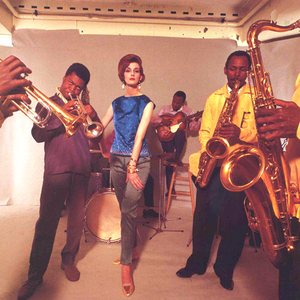
| Trackimage | Playbut | Trackname | Playbut | Trackname |
|---|---|---|---|---|
| 34057001 | Play | Ololufe Mi | 05:20 Tools | |
| 34057002 | Play | Highlife Time | 05:25 Tools | |
| 34057004 | Play | Ololufe Mi (My Lover) | 05:20 Tools | |
| 73720659 | Play | Highlife Time (1968) | 05:20 Tools | |
| 34057005 | Play | Omuti Tide | 03:51 Tools | |
| 73720660 | Play | Omuti Tide (1964) | 05:20 Tools | |
| 34057003 | Play | Laise Lairo | 04:14 Tools | |
| 73720661 | Play | Ololufe Mi (1964) | 03:51 Tools | |
| 73720662 | Play | Laise Lairo (1964) | 04:14 Tools | |
| 73720663 | Play | Wayo (1st. version) (1968) | 04:14 Tools | |
| 73720664 | Play | Wadele Wa Robin (1965) | 04:14 Tools | |
| 34057006 | Play | Wadele Wa Rohin | 04:07 Tools | |
| 34057008 | Play | Wayo (1st. version) | 04:43 Tools | |
| 34057007 | Play | Wayo (1st Version) | 04:43 Tools | |
| 73720665 | Play | Koola Lobitos-Ololufe Mi | 04:43 Tools | |
| 73720666 | Play | Wayo | 04:43 Tools | |
| 73720667 | Play | Wadele Wa Robin | 04:43 Tools | |
| 73720668 | Play | Viva Nigeria | 04:43 Tools | |
| 73720669 | Play | KOOLA LOBITOS - OLOLUFE MI | 04:43 Tools | |
| 34057019 | Play | Koola Lobitos / Wadele Wa Rohin | 04:07 Tools | |
| 73720670 | Play | This Is Sad | 04:07 Tools | |
| 89851877 | Play | Orise | 04:07 Tools | |
| 89851878 | Play | Wayo (1st. version) | 04:07 Tools | |
| 73720671 | Play | My Lady Frustration | 04:07 Tools | |
| 73720672 | Play | Funky Horn | 04:14 Tools | |
| 73720673 | Play | Witchcraft | 04:14 Tools | |
| 34057009 | Play | Koola Lobitos / Laise Lairo | 04:14 Tools | |
| 88093960 | Play | Ako | 04:14 Tools |

-
- 18,700
- plays
-
- 5,327
- listners
-
- 18700
- top track count
Led by Nigerian-born multi-instrumentalist, vocalist, and composer Fela Kuti (Fela Anikulapo Kuti), Koola Lobitos created a unique dance-inspiring hybrid incorporating the highlife music of Nigeria and Western jazz and R'n'B. With its powerful horn-driven arrangements and the piano playing of Wole Bucknor, the group laid the foundations for what evolved into the sounds of Afro-beat. The original lineup of Koola Lobitos was assembled in the late '50s when Kuti was a student at Trinity College of Music in London, England. By 1961, the group was one of London's most popular rhythm'n'beat bands. Returning to Nigeria, in 1963, Kuti formed a second version of the band with Tony Allen (drums), Ojo Okeji (bass), Yinka Roberts (guitar), Isaac Olasugba (saxophone), Tunde Williams and Eddie Aroyewu (trumpet), Tex Becks and Uwaifo (tenor saxophone), and Fred Lawal (guitar). Attempting to reach a more global audience, Kuti relocated the band to the United States in 1969. Although they performed in clubs along the West Coast, the group continued to struggle financially. Upon their return to Nigeria, at the beginning of 1970, the group was renamed Fela Kuti & Afrika 70. ~ Craig Harris, All Music Guide Read more on Last.fm. User-contributed text is available under the Creative Commons By-SA License; additional terms may apply.